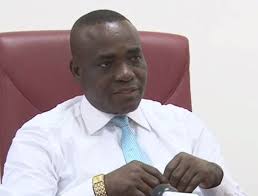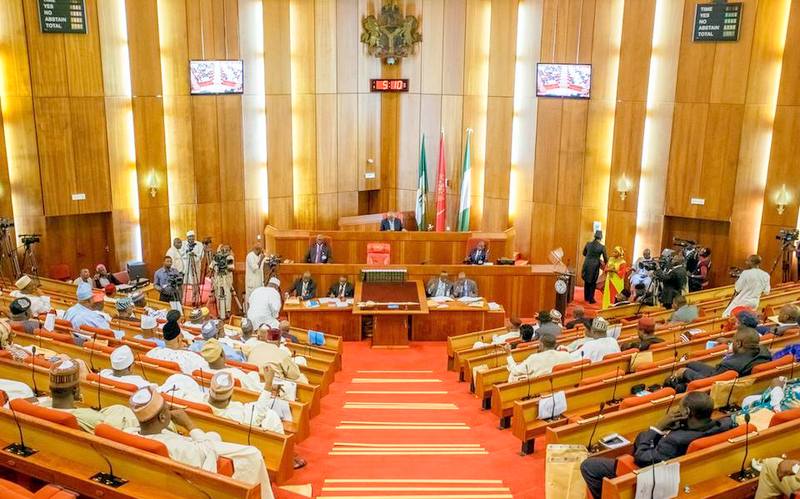Point Blank
Refusal To Sign Oil Bill (PIGB): If only Buhari was not the Petroleum Minister
Published
7 years agoon
By
Olu Emmanuel
By Ifeanyi Izeze
It is grossly disheartening that both the executive and legislature could allow politics, personality egos, and party affiliations to supersede national interests and potential benefits due to Nigeria and her people from the passage of this very important piece of legislation, the Petroleum Industry Governance Bill (PIGB).
On June 8, the Senate sent to the president for final assent into law the harmonised draft Bill earlier approved by the House of Representatives in January this year.
But, the President Buhari declined assent to the draft law. His reason for rejecting the bill also betrays the fact that the current administration is obviously out of tandem with global best practices in the oil industry.
The PIGB is one of four parts of the proposed Petroleum Industry Bill (PIB), which seeks to update and replace the outdated provisions with a more comprehensive and current legal framework that aligns with global standards.
Also, the PIB seeks to empower institutions and not individuals, remove bad governance which leads to inefficiency, ineffectiveness, rent-seeking tendencies, inequity, secrecy and corruption in the country’s petroleum industry.
The Bill proposes to reform the governing institutional framework of the Nigerian petroleum industry by setting up an independent regulatory agency, unbundling the NNPC into two limited liability companies and setting specific policy roles for the Minister of Petroleum Resources, amongst others.
In the works for almost two decades, the PIGB has passed through both the House of Representatives and the Senate. In its journey to the president’s table, contributions were taken from industry operators, oil-producing communities, all levels of government and, civil society groups.
It is on record that throughout the legislative process, relevant agencies and stakeholders had the opportunity to make input into the Bill during the public hearing and other channels. It is therefore shocking that after all the efforts, time and cost incurred in the passage of the Bill, we are back to where we started from on this journey.
The objectives of the PIGB, include transforming the administration of the upstream, midstream and downstream sectors of the Nigerian petroleum industry.
The bill creates a framework that will free up acreages that are not being developed by current license and lease holders, thereby creating opportunities for new investors. This will bring substantial new investment to the nation’s oil and gas industry.
The bill also ensures effective management of the environment by petroleum operators and administrators.
It provides a framework to unleash midstream activities which will open up the market for the supply of gas and other downstream products, for economic growth and provides much needed legal backing for the deregulation of our downstream petroleum sector.
Whether anybody wants to hear this or not, President Muhammadu Buhari’s decision not to assent to the Petroleum Industry Governance Bill (PIGB), 2017 allegedly due to the revision (reduction) of the powers of the Petroleum Minister, is bad news which is worse than fake news.
Thus far, the only explanation by President Buhari on his refusal to assent to the bill came from his aide on National Assembly Relations, Senator Ita Enang who was more or less rebutting published perceived reasons. What is clear is that the President himself either unilaterally took the decision, or was persuaded by the very close members of his circuit in the Presidency.
It was annoying that Senator Enang could make the statements that circulated in the media on the refusal of his boss to assent to the bill. The media went to press with the information available to them as the President and his men did not deem it necessary with the urgency it deserves to tell Nigerians his reasons for refusing to sign the document into law.
Senator Enang in his press statement on the issue had declared that “None of the reasons for withholding Assent by Mr. President adduced by the media is true”, in clear reference to the Reuters’ report, which said that President Buhari withheld Assent because the Bill whittles down the Powers of the Petroleum Minister, a position he currently holds also.
Many stakeholders would outrightly disagree with Senator Enang on his claim that there were “some legislative drafting concerns, which if assented to in the form presented will create ambiguity and conflict in interpretation,” as all strata of stakeholders including the executive, the oil operators amongst others were deeply involved and made their inputs in the legislative processes that finally produced the document which Buhari is refusing to sign into law.
It is very awkward that the President is angry with the provision of the PIGB permitting the Petroleum Regulatory Commission to retain for its operations as much as 10 percent of the revenue it generates.
President Buhari should tell us how the operations of the Department of Petroleum Resources (DPR), the existing regulatory commission, were funded? So the President is not bothered by the shameful setting where DPR staff, the nation’s sole monitoring eyes on the dubious activities of the multinational oil operators, literally relies on the same culprits they were supposed to be policing, to carry out their statutory mandates simply because of poor funding?
Truth be told and the President should sure be aware of this as the authentic minister of petroleum that the DPR technically depends almost one hundred percent for their operational logistics on the same IOCs they were supposed to be monitoring. Is this not what the 10 percent withholding arrangement as enshrined in the PIGB sets out to address by freeing the regulatory agency from the apron strings of the multinational operators?
So the argument that the provision “unduly increases the funds accruing to the Petroleum Regulatory Commission to the detriment of the revenue available to the Federal, States, Federal capital Territory and Local governments in the country to share,” is at best naive and at worst very short-sighted.
It should have occurred to the president that the refusal to assent to the Bill could become a welcomed dis-incentive and good excuse for the National Assembly to discontinue with the efforts to pass the other outstanding components of the Petroleum Industry Bill which bothers on fiscal frameworks, community participation and sector administration.
The president should be reminded that national interest and pride are at stake, as much as his integrity, considering that he had made repeated promises to the citizens that this law will be passed during the life of this present government to break the over 12-year old jinx holding down reforms in the nation’s oil sector.
If the National Assembly which truly has demonstrated genuine commitment to reform the way things are run in the nation’s oil industry, are aware that they are the representatives of the Nigerian people, they should seriously explore the option of overriding the veto of the President to demonstrate that power truly belongs to the people. God Bless Nigeria!
(IFEANYI IZEZE writes from Abuja: [email protected]; 234-8033043009)
You may like
Trending

 Entertainment6 days ago
Entertainment6 days agoSimi addresses resurfaced 2012 tweets amid online backlash

 Health1 week ago
Health1 week agoSCFN, LUTH introduce bone marrow transplants as curative treatment for sickle cell

 Health4 days ago
Health4 days agoDeclassified CIA memo explored concealing mind-control drugs in vaccines

 Football1 week ago
Football1 week agoHarry Kane nets brace as Bayern edge Frankfurt 3–2 to go nine points clear

 Football1 week ago
Football1 week agoLate Flemming header stuns Chelsea as Burnley snatch 1–1 draw at Stamford Bridge

 Crime4 days ago
Crime4 days agoSenior police officers faces retirement after Disu’s appointment as acting IGP

 Education6 days ago
Education6 days agoPeter Obi urges JAMB to address registration challenges ahead of exams

 Crime1 week ago
Crime1 week agoTwo killed, seven injured in early-morning shooting in Richmond’s Shockoe Bottom






